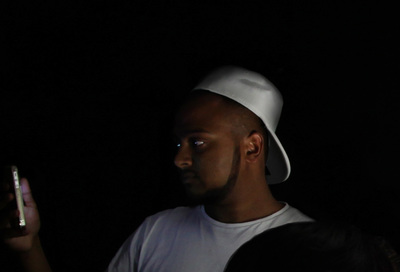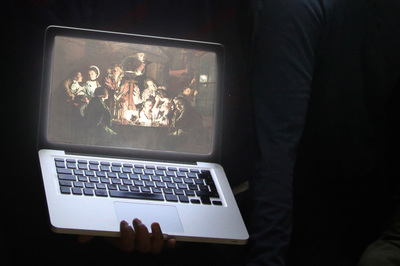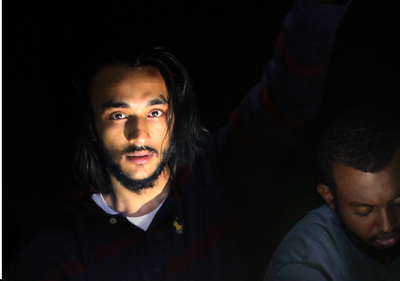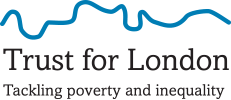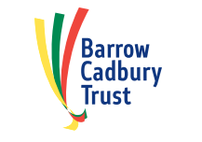what the project is all about
There’s so many different factors why you might end up in prison; there’s never just one reason. |
This website reports on Maslaha's work to engage young Muslim men from disadvantaged communities in activities which will tackle some of the root causes connected with youth offending and re-offending. The work began in 2013 with two years of work in Mile End and is currently being expanded in many different directions.
Offending and reoffending are strongly connected with a number of overlapping and interlinked social needs. The project looks at how to practically address related social needs in the context of offending among young Muslim men, and challenge negative stereotypes which act as a barrier to opportunity and engagement for these young people. In order to do this it is critical to work not only with young people, but also with service providers and statutory and public bodies - including teachers, magistrates, police and probation services - to address failures to provide services appropriate to young people of all backgrounds. The issues raised in this project underline the urgent need for support, access to resources and skills development and activities which resonate with the needs of young people at risk of offending. This site highlights research carried out in the first year with our focus group in East London - exploring themes such as family, religion, education, employment and identity - as well as subsequent interventions taken in the second year and beyond based on this research. These interventions work across three main levels in order to challenge narratives and influence systemic change. 1. Practice: working intensely with communities on a grassroots and local level. This includes our year of work with MCP, as well as other groups of young men in NW London and Leicester, and workshop programmes with schools in East London. 2. Policy: influencing at a strategic level - based on our work at a local level. Our initial work with MCP was picked up by the Young Review - an independent review into improving outcomes for young black and Muslim men in the criminal justice system, chaired by Baroness Lola Young - and as a result of this we are now part of an advisory group reporting directly to the Ministry of Justice and the National Offender Management Service (NOMS). 3. Public imagination: influencing, and where possible shaping, public debates and media narratives. In this case we worked together with artist Hannah Habibi, to recreate a landmark painting - Joseph Wright's 'The Experiment' - using the 'language of the elite' to challenge how these young men are portrayed and perceived, both within their community and outside of it. We also worked with the young men in Leicester to recreate an image from the New Walk gallery. Read more about these interventions here. The findings of the first phase of the Young Review were published in a report in December 2014, and identified an over-representation in terms of numbers, and also a disparity in both treatment and outcome for young African, Caribbean, mixed origin and Muslim men at every stage of the criminal justice process. In support of recommendations from The Young Review that a range of practical and powerful tools be developed for future providers to intervene early and reverse this proportionality, Maslaha received funding from The Barrow Cadbury Trust in 2014 to conduct a scoping exercise to ascertain how prosecutors and sentencers can be more suitably equipped to deal with young Muslim men who come into contact with the criminal justice system. You can read more about this here. The findings of this work and an implementation plan proposing steps forward was published in March 2016, read the report here. Listen to a 3-min clip on BBC Asian Network about the project. The first two years of this project have been generously funded by: |
Key points
- Offenders and rehabilitation: A study published in December 2012 by the chief inspector of prisons and the Youth Justice Board showed that the proportion of young male offenders in Young Offender Institutions who describe themselves as Muslim had risen sharply from 13% in 2009 to 22% in 2011–12.
- A briefing paper on prison population statistics published in July 2016 showed the percentage of Muslim prisoners in England and Wales in 2016 to be 14.6%. In 2002, the figure was 7.7%. Importantly, fewer than 1% of the Muslim prison population in England and Wales are in prison for terrorist-related offences.
- Difficulties 'resettling': A report by the Muslim Youth Helpline in 2011 has outlined the difficulties faced by Muslim ex-offenders during their resettlement periods. There is a sense of alienation from wider society, a misunderstanding of Islam and Muslims, and a disconnection from the state, establishment and the older generation.
- Misunderstanding and disenfranchisement: There is a lack of forums for young people to express themselves. A majority of young Muslims find Muslim organisations and local leadership largely irrelevant to their concerns. They also feel alienated from UK Government because of domestic and foreign policy, and unfairly represented by the media.
- Identity: Self-identity is complex and varied, and Muslims in the UK represent a heterogeneous and diverse group in terms of religion, ethnicity, class, culture and family background, and socio-economic status. The process of self-definition has been made more difficult with the pressure from the intense interest and scrutiny since the 2011 riots and 7/7 bombings. Maleeha Aslam has also outlined the particular pressure young Muslim men face as a result of perceptions of masculinity and the pressure to perform in gender normative ways.
- Barriers to civic participation: Including perceptions of marginalisation, economic and structural disadvantage, and lack of support, resources and skills for effective participation.
- Social and economic disadvantage: As the data from the 2011 Census illustrates, young Muslim men are more likely to come from disadvantaged areas. They are more likely to be socially excluded and experience low levels of participation.
- High rates of unemployment and discrimination: According to the 2011 Census, 17% of all Muslims between the ages of 16 and 24 are unemployed - the highest rate, quite significantly - of any faith group, and 45% are economically inactive (for a mix of different reasons). Almost 100,000 Muslim men of working age are unemployed, and almost 400,000 Muslim men of working age have no qualifications.
- In Tower Hamlets, around half of Muslims were economically active (52%) compared to around two-thirds (67%) of all people. The majority of Muslims who were economically inactive were ‘Looking after the home or family’ (34%) and ‘Students’ (24%).
- Studies in France have illustrated how those with Muslim names face massive discrimination when applying for jobs in comparison to those with a Christian first name (who are more than two-and-a-half times more likely to receive a response from a potential employer).
- Research commissioned by the Department for Work and Pensions found that candidates with white-sounding names would have to send in nine applications to receive a positive response from employers, compared with sixteen for candidates with the same qualifications but with an ethnic minority name. That is, 74% more applications from ethnic minority candidates would have to be sent for the same level of success.
All We Are: Event trailer from Maslaha on Vimeo.
about us
Maslaha aims to change and challenge the conditions that create inequalities for Muslim communities. We combine creativity with practical work and strategic thinking to tackle social issues in areas such as health, education and the criminal justice system that sit within an ecology of interconnected factors.
Our work involves building a network of collaborators, and creating products (e.g. DVDs, websites, or exhibitions), which help to improve a service, change attitudes and disseminate information. The beneficiaries are local communities, but Maslaha also influences policy makers, national organisations, and seeks to change wider public attitudes.
Visit our main website at: www.maslaha.org and support our work here
Our work involves building a network of collaborators, and creating products (e.g. DVDs, websites, or exhibitions), which help to improve a service, change attitudes and disseminate information. The beneficiaries are local communities, but Maslaha also influences policy makers, national organisations, and seeks to change wider public attitudes.
Visit our main website at: www.maslaha.org and support our work here

